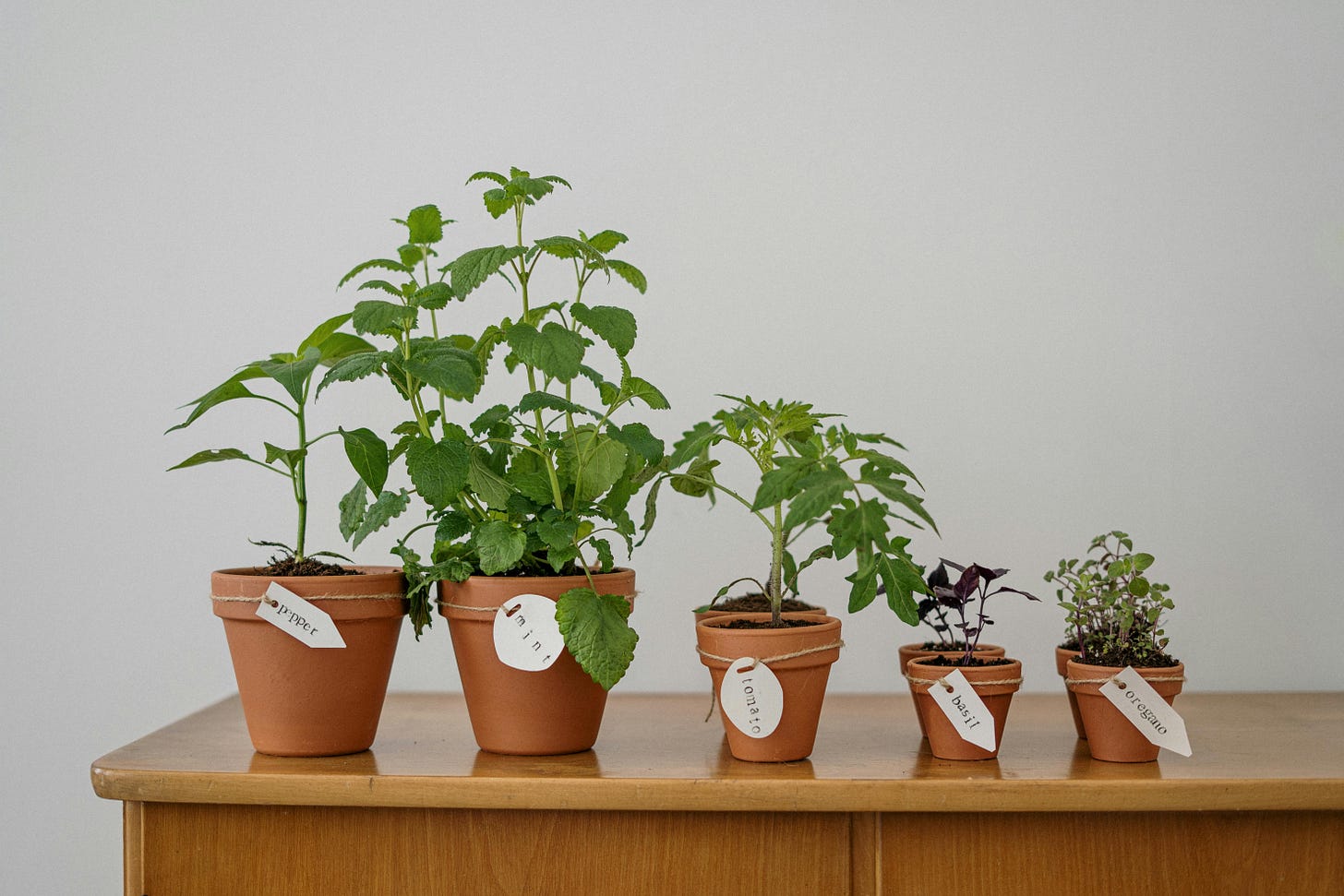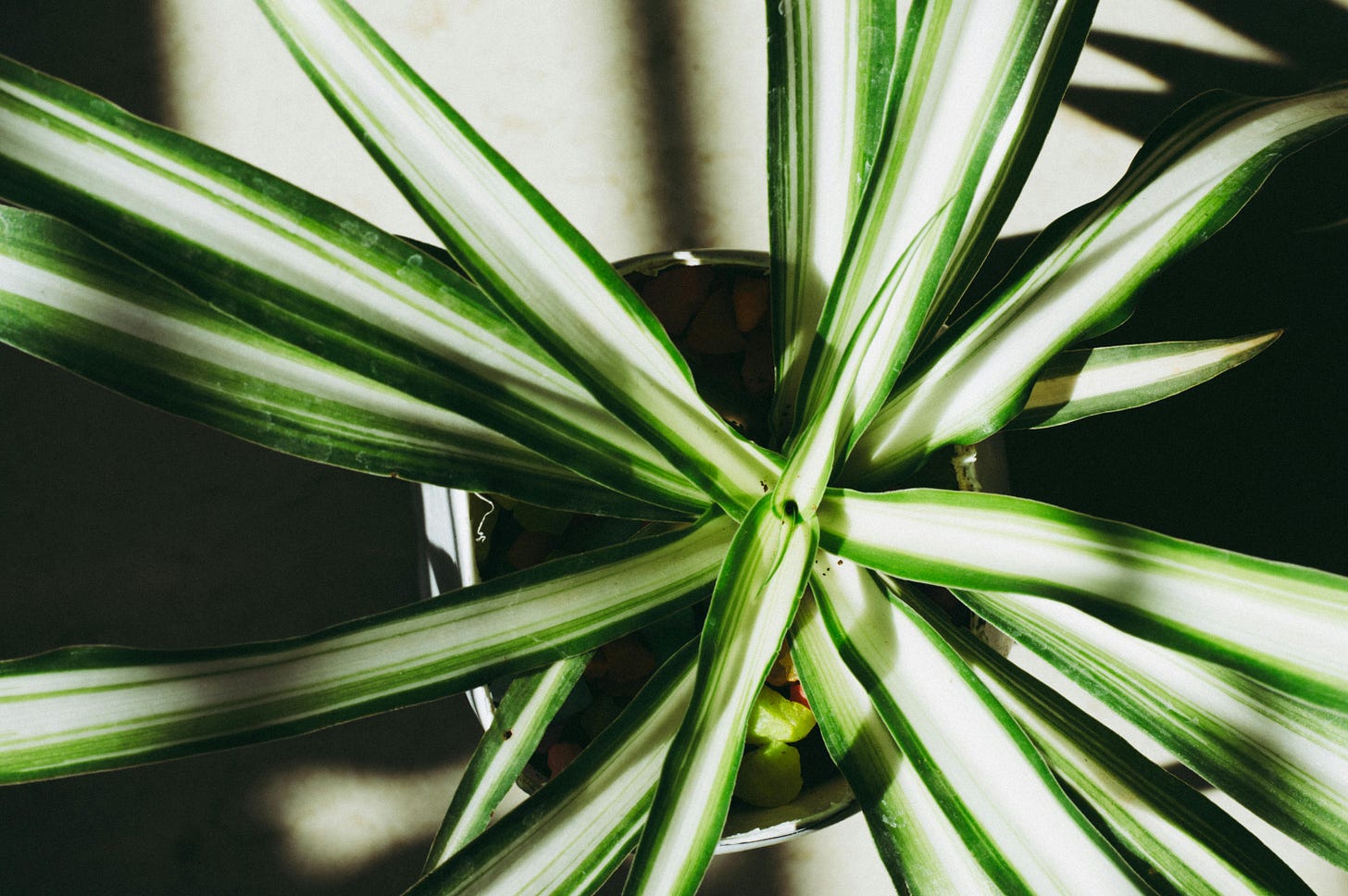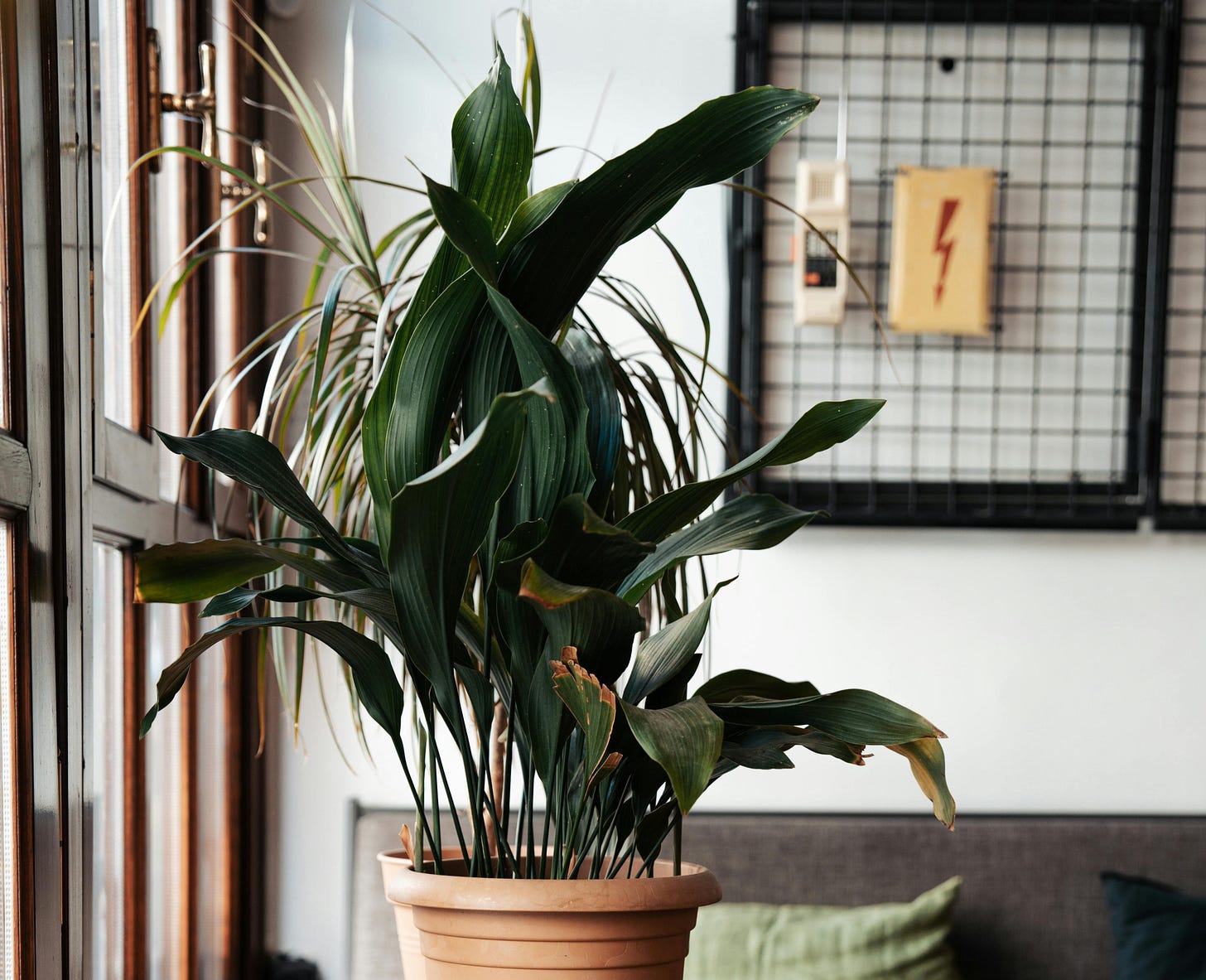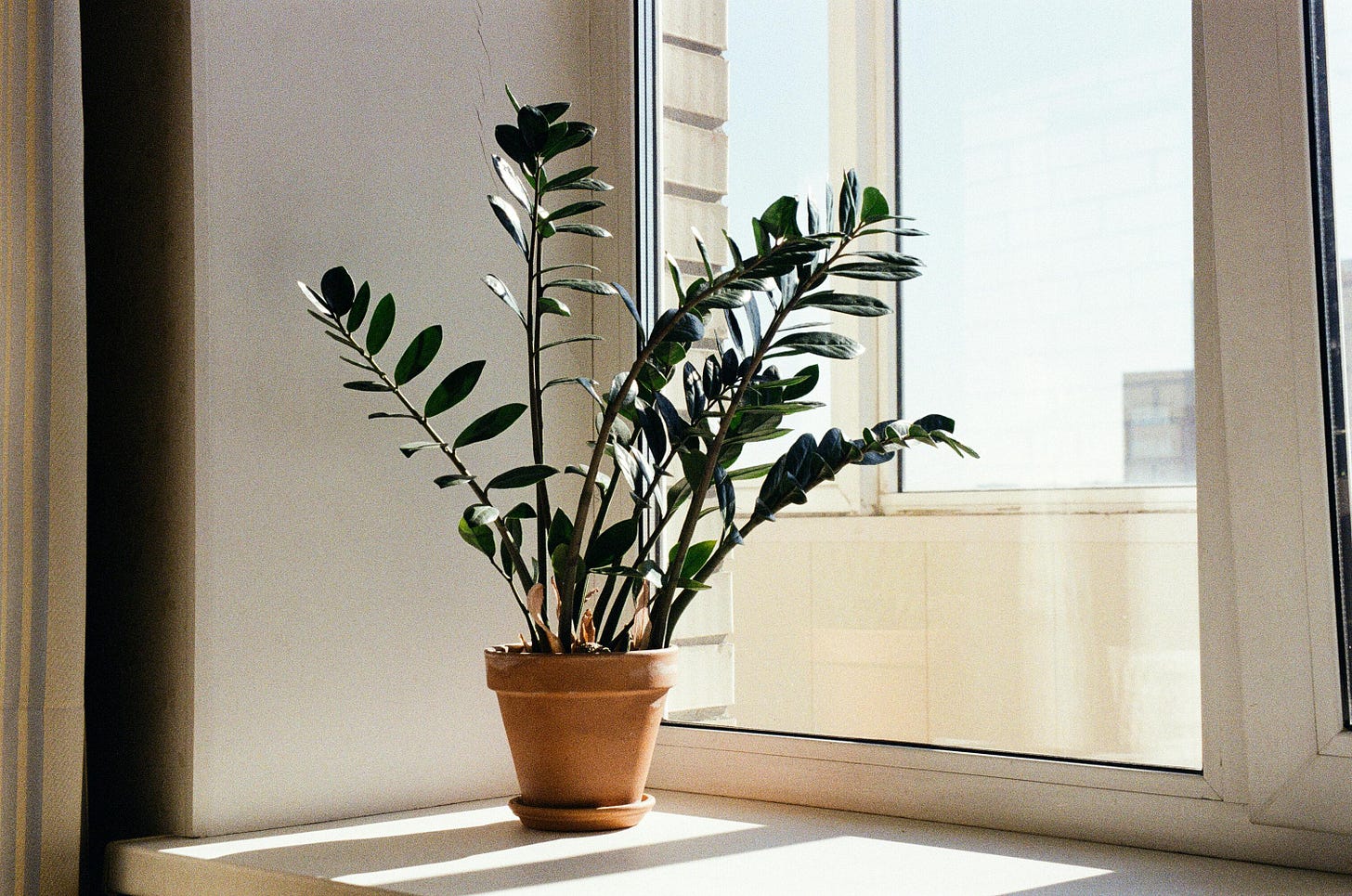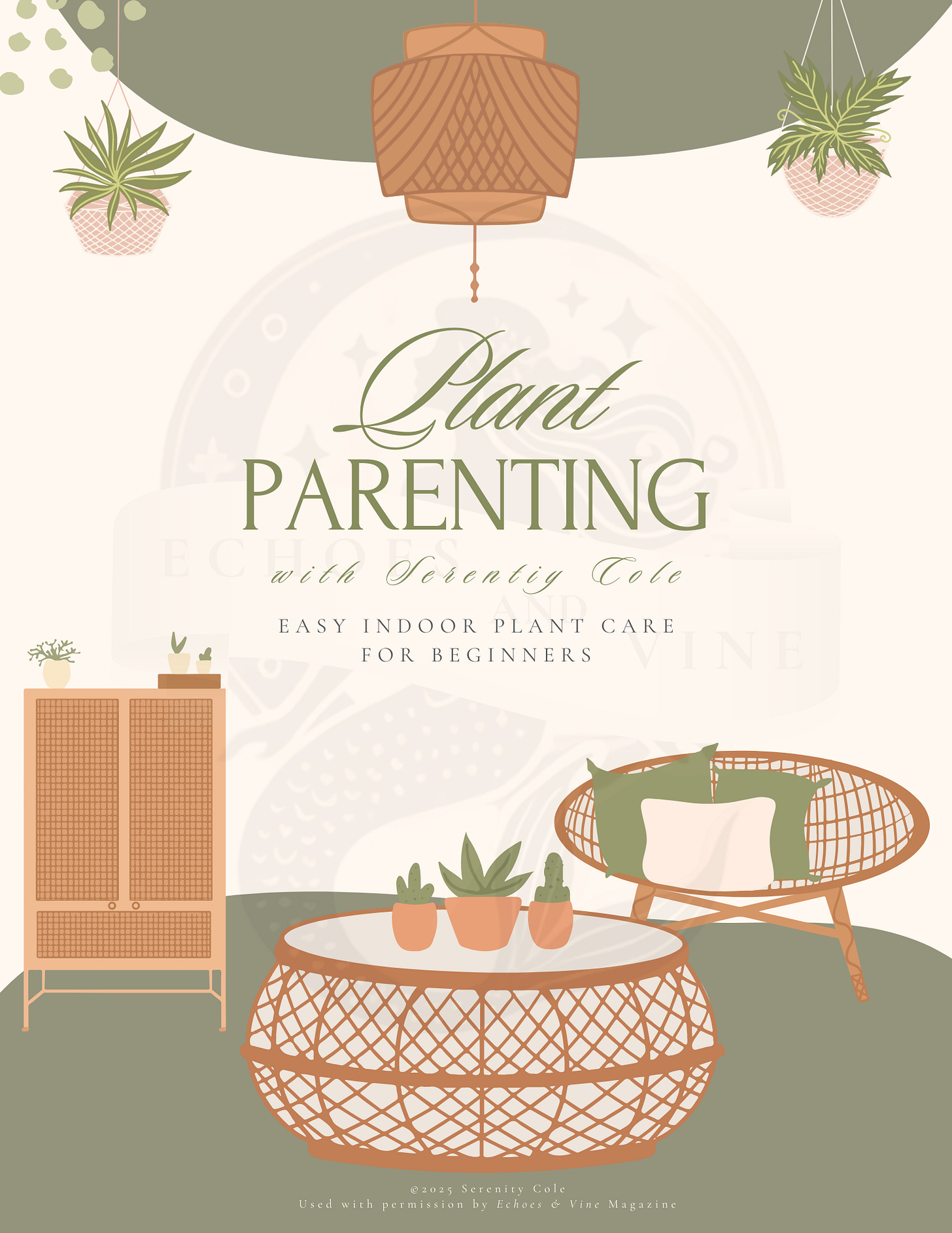Join Serenity Cole on a journey of self-discovery, as she shares her personal story of finding solace in the natural world. Learn how to nurture your mind, body, and spirit, and unlock a deeper sense of calm, clarity, and connection with the transformative power of plants. Get ready to blossom into your fullest potential.
Interview and article by Jenny Cline featuring Serenity Cole
Episode Transcript
Jenny:
Welcome to The Echo Effect. Today, we welcome Serenity Cole. As a mom and working professional, Serenity has mastered the art of prioritizing self-care in a busy world.
Inspiration recently called upon me to dig beyond surface-level self-care. I want to explore the personal practices that seemed to be taking my friends on some kind of Shamanic astral trip - in other words, how do I get to that deep state of relaxation and delight?! While not a Shaman, Serenity connects with the earth on an intimate level, even while the universe we inhabit may feel vast, inundated, yet simultaneously devoid. From her love of plants to her transcendent experiences in nature, I'm curious to learn how she taps into a deeper sense of peace and joy.
As we explore these themes, I hope to inspire our community to cultivate a stronger connection with themselves and the natural world. Connecting with a sense of oneness has the power to transcend boundaries and flourish as our most authentic selves.
So, let's get vulnerable, and weed through wilted self-care and plant something new. “Welcome, Serenity!"
Can you share with us how your passion for plants began and how it's evolved over time?
Serenity:
Absolutely. Thank you so much for having me today. I am so thrilled to share some of my experiences that I've had. My passion for plants, it actually started during the COVID pandemic.
It slowed the world down. It isolated us to our own pockets of the world. A family member suggested since I was going to be home, I should purchase plants for my patio. Initially, I declined the idea because I had a less than stellar history of taking care of plants.
With the world having slowed down, I figured, why not? I'm going to be home anyway. So I went out, I purchased about eight tropical plants. I really had expected them to all die. Most of them did, except for two that survived. What I learned with that time is I really loved being outside with plants.
When I was sitting outside on my patio, I would feel like I was in my own world. That was very reassuring. It was very peaceful. And then at the end of the next season, the plant survived. I was actually very shocked and surprised by that, it also helps to reinforce that I could be successful with plants, which was different than what I believed prior to this experience.
Jenny:
I can relate to that because. I haven't taken care of many plants. I think we overcomplicate it because it seems like there's a lot that goes into it: going to the nursery, and can you trust getting it from the corner grocery store? It's like a goldfish. You win something at the fair and pretty much are wondering, how long is this thing going to survive?
If you are not used to taking care of them, do you really invest in something from the nursery? I relate to the apprehension of, “oh gosh, this is life!” You want to see it thrive and survive. Who wants to be the culprit if it didn't make it?!
So yes, exactly.
What's it like for you to be among nature and how you experience the world around you when you're surrounded by greenery? After the pandemic, you still took care of your plants and you transitioned from having them in your home to expanding that environment. Can you tell us more about that?
Serenity:
I have always enjoyed being outside in nature. I was fortunate that I grew up in a rural area where being outside among nature, among plants, it was the norm. My family had gardens. We had farmland. Growing plants, and growing it more so for food than necessarily for connection - it taught me to have an appreciation for nature and what nature can do and provide for you.
I remember as a child, being outside was also a place that I felt free. I could run, jump, yell, scream at the top of my lungs. I was permitted to do so because I was outside.
It was a very freeing experience. But when I grew up and I moved away for college, I went to a much busier city where being outside was not the norm anymore. So I adapted to being indoors.
But nature still has that way of calling to you and beckoning to you.
As an adult, having plants inside my home, it was a way of me bringing the outside indoors with me. That has allowed me to become a lot more receptive to nature.
When I touch a leaf of a plant, for me, it feels like I'm being transported to a different space. And it's a space where I can be that child again, where I can be free. I can be at peace and the world can slow down for me.
So that is encouragement to continue to expand and invite more of nature by way of plants into my home.
Jenny:
I've read about this connection where as adults, we lose touch with, even just the feeling of taking off our shoes and our socks. Walking through a patch of grass and just feeling that connection with the earth.
Our listeners don't know this, but you and I have been to several botanical gardens, outdoor gardens, and I have seen what this transcendence looks like. It is something that, really I cannot describe with words, but I have seen it.
Right before we started this podcast, we were talking about, I'm a Harry Potter fan. So for me, I imagine it’s kind of the same experience going to Warner Brothers Studios. It's this magical experience where it makes you feel like a kid again.
For you, that's that playground, earthy experience of just feeling alive and feeling free. There is just this childlike enthusiasm that is happening for you in that moment.
I think it's something that's very accessible. Something that doesn't cost a lot of money. Doesn't take a lot of planning. It is something that we don't even have to step outside to do. That’s what we're learning today. I love that.
Obviously, your love for plants has been evident in your writing as it explores personal growth and the human experience. How do you think your relationship with plants has influenced your perspective on these topics?
Serenity:
What I have found is that nurturing the plants, they've taught me how to nurture myself. When their needs are being provided, they flourish and they grow. But it does require patience. That's how I think it relates to myself.
When I have what it is that I need, I can grow. I can flourish. I can prosper. I can stretch up to the sun and spread my wings. Like how the leaves of a plant do.
Jenny:
When we have that connection with nature in our own lives, especially when we're in urban areas and green spaces might be limited, how are we supposed to cultivate that connection? What are your recommendations for that?
Serenity:
Aim to create a space to invite nature into your home. Be open with yourself to explore what that looks and feels like for you.
It might be having just one plant in your home, or it could be having 10, or it could be not plants at all. It could even be in different forms, like a picture of the ocean near a window. That way, you can go sit in that chair and look at the world outside of that window.
I think if you start doing that and start cultivating, even if it's a small little space in your home that you can connect with and represents for you, bringing sort of, like me with my plants, of being able to touch the outside from inside.
Jenny:
Our home when we lived in England, we had mint. My husband said that is something that I promise you, you cannot kill. Grows like a weed! And sure enough, it did. We just had this whole plant bed of mint. I actually felt quite proud of myself.
I was taking such good care of it. It had bloomed and blossomed into this whole bed. It pretty much grew like a weed, which I did not know. I think it took him about a year to tell me how much it could flourish on its own.
If you had any advice, what would you give to someone who wanted to tend to plants, but doesn't know where to begin?
Serenity:
Well, actually, right. How did that make you feel? It made you feel like you were a winner. Empowered. It made you feel successful and that you can do it. That you can provide for this plant in a way for it to thrive and to grow.
Taking care of plants, that is one of the ideal situations. You would start with a plant that's a little more sturdy. Mint actually might be the thing. Starting off with plants that flourish very easily, more of what they would categorize, like a weed type, because they thrive and they can adjust.
You also have to open yourself up for trial and error. The same way that you have to do in life. Some things are going to work, some things are not.
I would also say that it helps a lot starting with a plant that's already established.
What I mean by established is one that's already rooted. It's already full and big in size. It has full leaves. These plants can be considered older, so they can be more tolerant to conditional changes as you learn to take care of them.
And so it's sort of like having an older mentor that's already established. They have more patience to guide you while you learn. It's also an example of where you're trying to develop yourself to be like that mentor, or in this case, like that older plant where you want to establish yourself to be - fully rooted, large in life, with full wings that you can spread.
Jenny:
I love that idea. Could you give us some recommendations? We have mint as our apprehensive starter. You can't mess this up. I think expert level is an orchid. A lot of us are familiar with that concept.
Can you give us some intermediate, mid-level kind of ideas? Something that we could easily pick up from the grocery store.
Going to a nursery I think can also be quite intimidating, but also helpful. If you could walk us through, maybe even a challenge of going to a nursery. Do they expect you to know what you're doing when you go there? Do you find in your experience that they're quite helpful?
Can you walk us through what it's like going to a grocery store and making a selection from what's available?
And also, for those who feel up to it, what's it like going to a nursery and picking out our selections?
Serenity:
There definitely are different types of situations that you're going into, and you'll get different results.
When I purchased my tropical plants, I just went to the local Home Depot and saw a bunch of plants and said, okay, let's just try it out. I learned it can get quite expensive, especially if you're purchasing those older established plants.
I didn't initially want to make a huge investment, because I didn't know, okay, is this thing going to survive or not? I just randomly purchased things that I thought were pretty and brought them home. So that avenue of it is less daunting. It doesn't feel so intimidating.
However, going to a nursery has the bonus and the benefit of, you have a lot of help there. You have people who are very much involved and engaged with different types of plants and how to care for plants.
They can give you tips. They can give you advice. They can actually guide you and steer you towards the best type of plants for you. You can tell them what type of growing conditions you have in your home. A home that's a bit dry? High humidity? A lot of natural lighting?
Going to a nursery is beneficial in that sense of you can talk to someone there and tell them, “Hey, this is the conditions that I have.” What does that look like? What type of plants can you guide me towards?
There are some base plants that were probably better options to start with.
One of them is spider plants. Spider plants are very hardy, very sturdy. They are that weed-type plant where you get one and once you kind of learn, they just take off like your mint.
Another plant that I love is called a cast iron plant. They're very forgiving. I still have that plant today, four years going into five years later.
I recently purchased a ZZ plant. Those are actually very common to find as well. I got that from Aldi's. I think it was $10 or $15? That's an easy buy and investment.
Try not to be intimidated by going to the nursery because it is a good place for people to give you advice. They're just people who love taking care of plants. And so, they have a wealth of knowledge.
There's also apps as well. Now you can use as identifiers for the type of plant that you have. It can also diagnose conditions of what's going on and what you could do to treat the plant.
Another thing that I've gotten into is plant swaps. Plant swaps are where people take their excess plants and they trade it with someone for another plant.
Plant swaps are a lot more informal than going to a nursery. It can be in your community or your neighborhood. I go to one that's at my local library.
I love it because you're trading with someone. We both walk away with a win-win situation. That person who has been taking care of this plant can share and guide you as to what the plant is, and what those plants’ needs are. So that way you can flourish with yours as well.
Jenny:
I suppose you could also go to the nursery with a set budget and just say, this is my budget. This is what I'm looking for. These are my conditions. Hopefully, they would have something that could work. Obviously a five-dollar budget isn't going to get you very far, but if it is something that you're looking to pick up a new hobby and make an adequate investment in- I’m sure you can find something to make it work.
Well, thank you so much! I think we have some great ideas to seed. Think about how we're going to plant these. And hopefully, cultivate some new ideas as far as our self-care. And really thinking about our whole theme for February, this idea of new ways of thinking about, how we are going to love and pamper ourselves, healthy ways, and what that can look like.
So thank you so much, Serenity, for your time today. We really appreciate it. I love that idea of the swap. If one doesn't exist in your area, you can always start one of your own.
Serenity:
Absolutely. I hope I was helpful and beneficial for someone listening today. Thank you so much.
Special Bonus for our Paid Subscribers!
Plant Parenting with Serenity Cole: Easy Indoor Plant Care for Beginners
The "Easy Indoor Plant Care for Beginners" guide solves the problem of feeling overwhelmed or uncertain about starting an indoor plant care journey, providing beginners with the knowledge and confidence to successfully nurture and care for their plants.
Extend the invitation!
Share Arbor of the Vine with like-minded individuals.
We're committed to helping women cultivate their inner strength, creativity, and purpose, within an inclusive community that uplifts and inspires.






